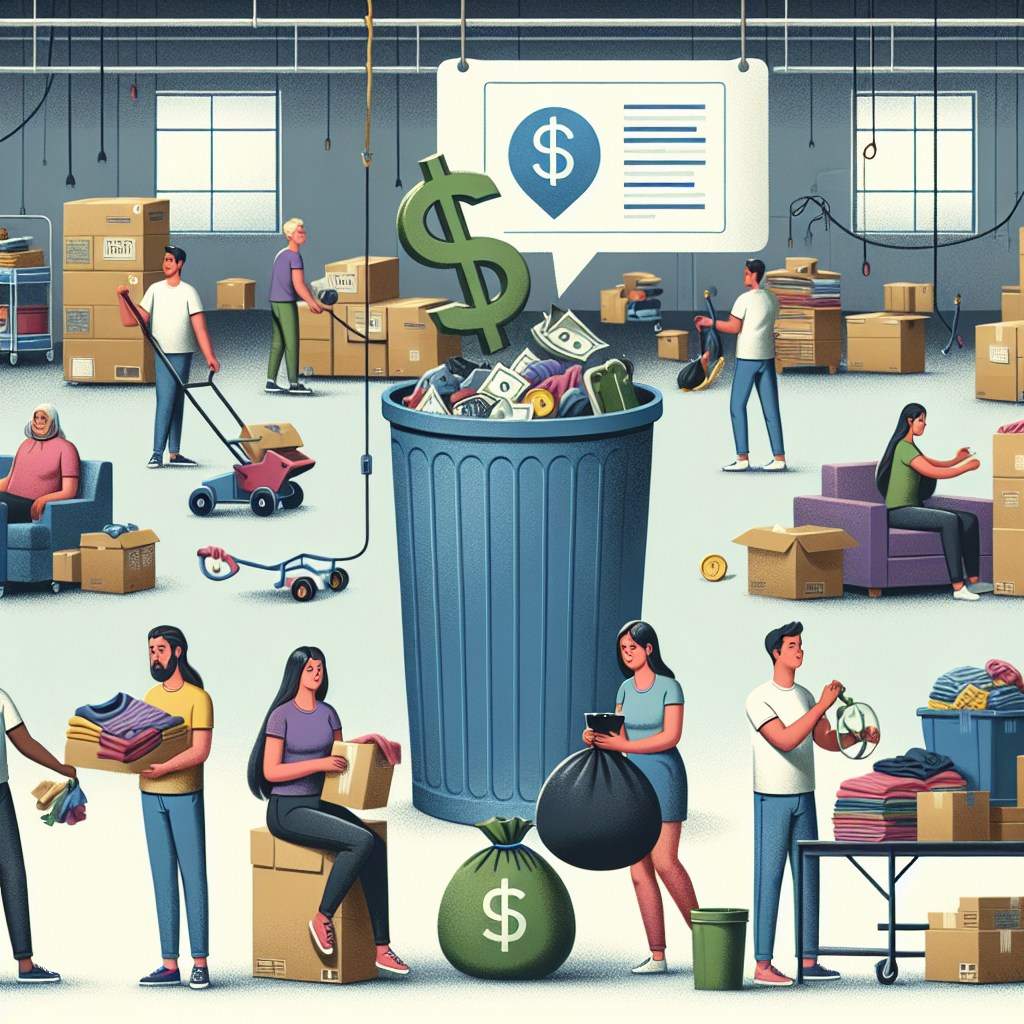Charities Incur Massive Costs Disposing Unusable Donations

Charitable organizations are facing a significant challenge that is impacting their bottom line and diverting resources away from their primary mission. The issue at hand is the disposal of unusable donations, which are not only unhelpful but also costly to manage. This problem is not only affecting charities but also has implications for investors in waste management and recycling sectors.
The Problem of Unusable Donations
Charities often receive donations that are unusable or unsellable. Examples include men’s underwear with a hole in the crotch, towels covered in paint, and other items that are damaged or soiled. These donations, while well-intentioned, pose a significant problem for charities. They must spend time and resources sorting through these items, and then pay to dispose of them. This is a cost that many charities can ill afford, and it diverts resources away from their primary mission of helping those in need.
Implications for the Waste Management and Recycling Sectors
While this issue is a problem for charities, it presents an opportunity for companies in the waste management and recycling sectors. These companies could potentially partner with charities to manage the disposal of unusable donations, providing a valuable service and creating a new revenue stream. Investors in these sectors should be aware of this potential opportunity.
Examples of Companies That Could Benefit
Companies such as Waste Management Inc. and Republic Services Inc., which are leading providers of waste management services, could potentially benefit from this situation. These companies already have the infrastructure in place to manage large volumes of waste, and could potentially offer discounted services to charities as part of their corporate social responsibility initiatives.
On the recycling side, companies like Veolia Environnement and Suez, which specialize in recycling and resource management, could also stand to benefit. These companies could potentially repurpose some of the unusable donations, turning waste into a resource and contributing to a circular economy.
Investor Considerations
Investors in the waste management and recycling sectors should monitor this situation closely. If charities begin to seek out partnerships with these companies to manage their unusable donations, it could represent a significant new business opportunity. However, investors should also consider the potential risks. For example, if charities are unable to pay for these services, it could put pressure on the profit margins of waste management and recycling companies.
Summary
This issue of charities incurring massive costs disposing of unusable donations is a significant problem for the charitable sector, but it also represents a potential opportunity for companies in the waste management and recycling sectors. Investors in these sectors should monitor this situation closely, as it could have implications for company revenues and profit margins. As always, investors should carefully consider the potential risks and rewards before making investment decisions.
